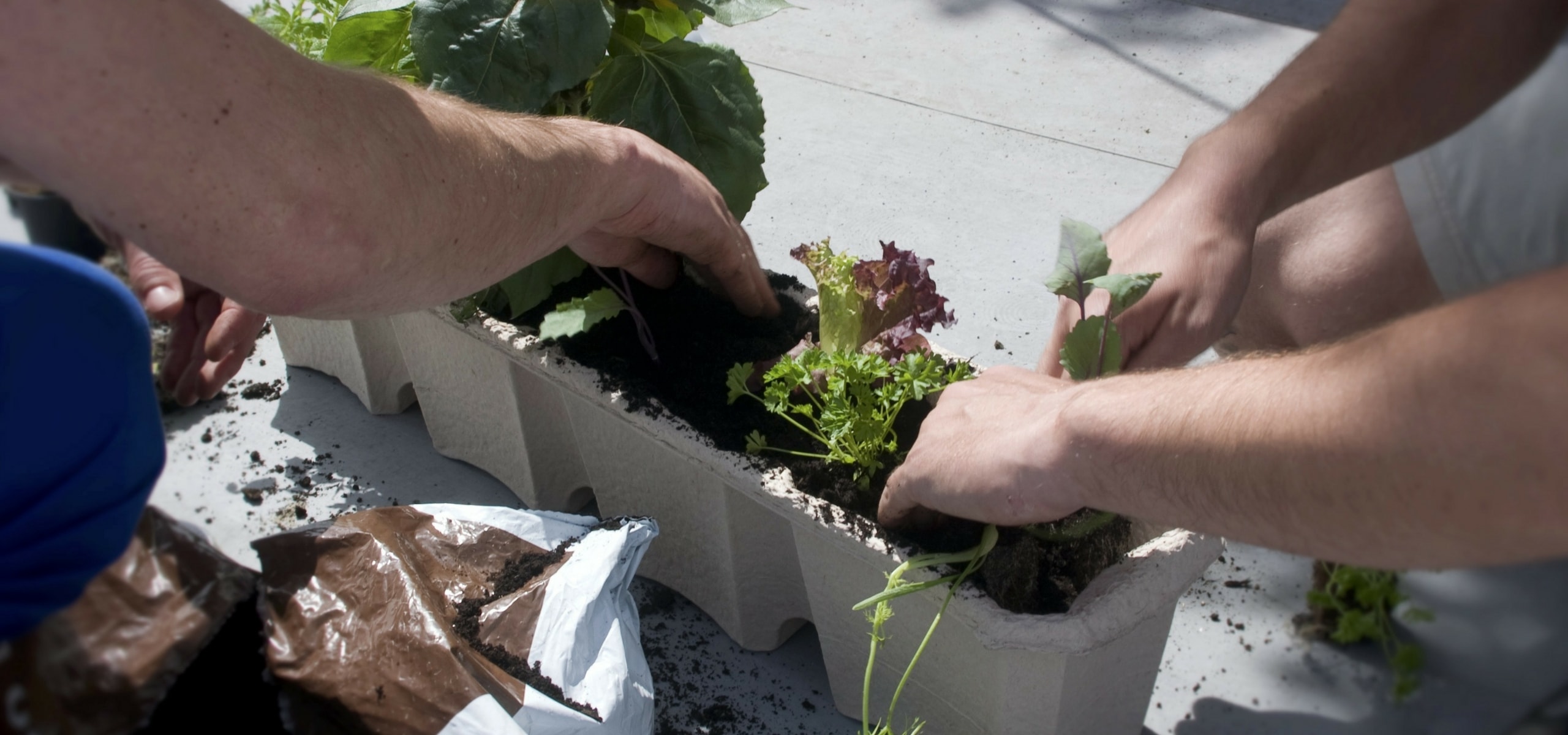
Balcony vegetable garden
our tips for succeeding
Contents
Installing a vegetable garden and growing vegetables on the balcony, on a terrace, or on any other waterproof surface is entirely possible. In fact, it can sometimes be easier than in open ground, provided you adhere to some essential principles.
The right exposure
Most vegetable plants need warmth and at least 6 hours of sunlight per day to thrive. Tomatoes, courgettes, peppers, chillies, aubergines… should be placed in the sun, while other vegetables, such as Swiss chard, sorrel, and herbs in general, will prefer partial shade, especially in the south of France. Therefore, carefully observe the intended space before you start, especially since in urban areas, the shadows cast by neighbouring buildings can be significant.
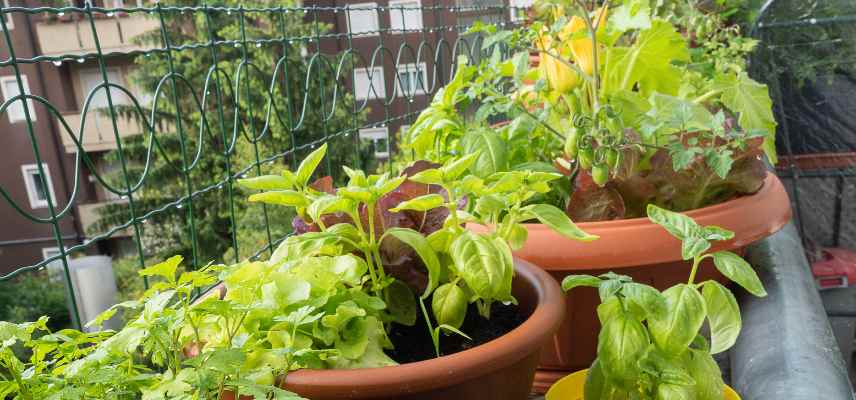 Most vegetables need sunlight: your balcony must receive sufficient sunlight and warmth</caption]
Most vegetables need sunlight: your balcony must receive sufficient sunlight and warmth</caption]
Read also
Balcony vegetable gardenSuitable containers
While almost all containers are suitable, some are better suited than others.
Whatever your choice, the ideal container is:
- large enough, but also deep enough (30-40 cm) to hold a sufficient volume of substrate and allow for the potential cultivation of root vegetables (carrots, turnips…),
- drained with holes so that excess water can easily escape,
- lightweight, especially on balconies which should not be overloaded (generally, no more than 350 kg per square metre, but it is wise to consult the builder if you plan extensive cultivation),
- ideally, breathable so that the roots of the plants can develop harmoniously, without circling around the pot.
Plastic pots and containers are economical, especially if they are recycled, but they tend to overheat in the sun. Large clay pots are a good alternative, but they are heavy and need to be stored away in winter, as they are often susceptible to frost. Growing bags (such as Bacsac® or Smartpot) are very practical and have the advantage of being lightweight. Finally, there are many planters and raised beds available commercially specifically designed for urban vegetable gardens.
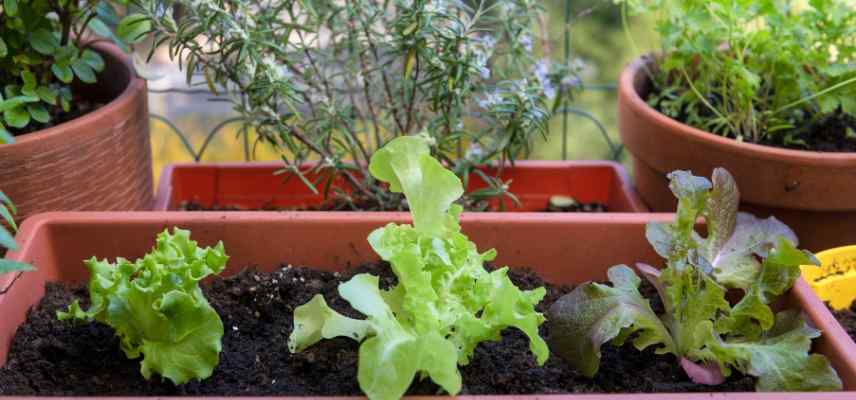 Planters, pots… it doesn’t matter, but the containers must have holes in their base.
Planters, pots… it doesn’t matter, but the containers must have holes in their base.
Discover other Vegetables for patios and balconies
View all →Available in 1 sizes
Available in 0 sizes
Available in 1 sizes
Available in 0 sizes
Available in 1 sizes
Available in 1 sizes
Available in 1 sizes
Available in 1 sizes
Available in 1 sizes
Available in 1 sizes
Quality compost, regularly fertilised
Whether they are “greedy” or not, vegetables need a quality substrate. Instead of opting for a budget compost, choose a quality compost that is rich in nutrients and also retains water, but without excess.
As the substrate depletes quickly, to maintain its effectiveness, we advise you to:
- for demanding vegetables, make a liquid fertiliser application during the growing season,
- maintain quality and fertility (the compost can then be kept for several years) by regularly adding compost.
To do this, using a worm composter is ideal: the “worm tea” will serve as a liquid fertiliser while the compost will provide the base fertilisation. You can also use a Bokashi bucket, very practical for apartments.
⇒ Discover our advice sheet on how to choose composts and fertilisers suitable for balconies, terraces, and small gardens.
Watering: under close supervision!
In pots or containers, the soil tends to dry out much more quickly than in open ground. Watering will therefore need to be regular: never let the compost dry out completely (it would become very difficult to rehydrate), but avoid waterlogging it. In summary, water moderately, but more often than in open ground. As in a vegetable garden, mulching is beneficial as it will retain moisture: hemp pale, buckwheat husks, or cocoa are both effective and decorative.
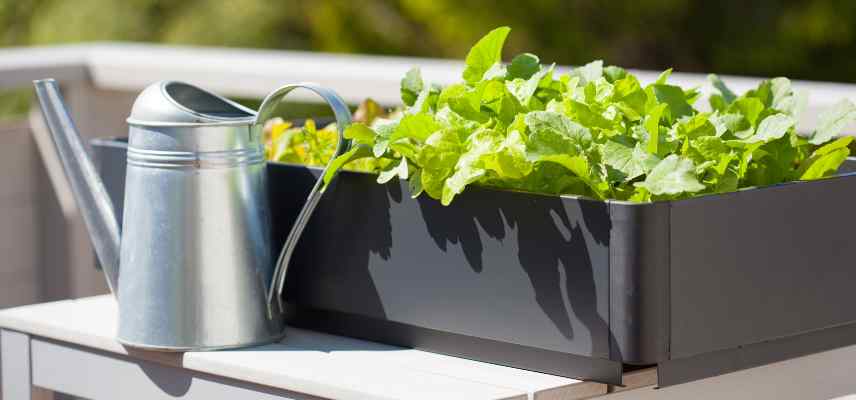
Watering is even more crucial to control on small surfaces and containers.
Vegetables suited but also flowers!
All vegetables and aromatic plants (or almost all) can be grown in pots or bags as long as the quantity and quality of the substrate are sufficient for their proper growth. To enjoy a wide range of vegetable plants in a limited space, it is interesting to consider varieties with compact growth that are particularly well-suited for pot cultivation.
Finally, to complete your vegetable garden, we invite you to add some flowers (dwarf cosmos, nasturtiums, small zinnias) that will give your balcony or terrace a lovely appearance while attracting valuable pollinators.
To go further
- Essential equipment for gardening on your balcony
- Balcony, terrace and small gardens: perfect composts and fertilisers for small spaces
- Subscribe!
- Contents






























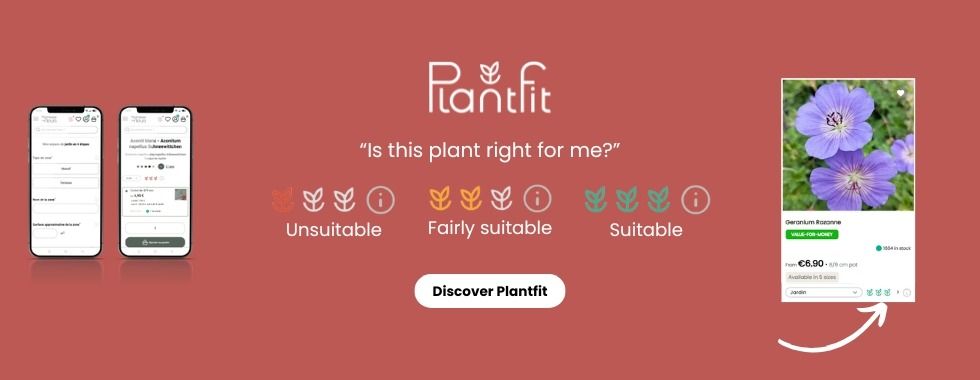
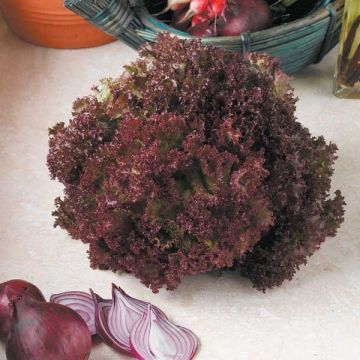
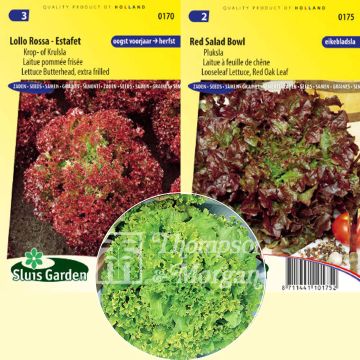
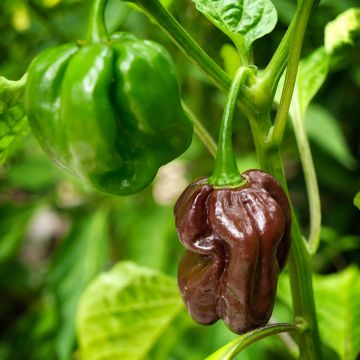
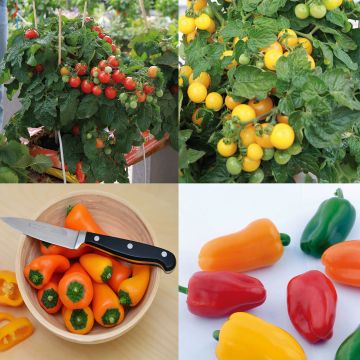
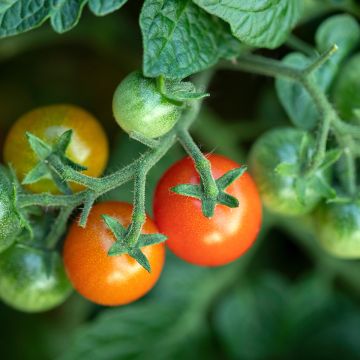
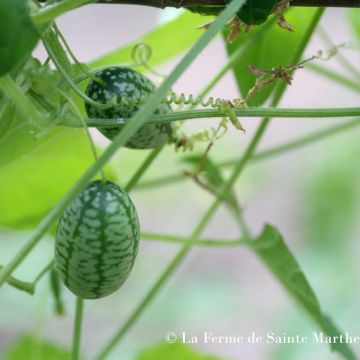
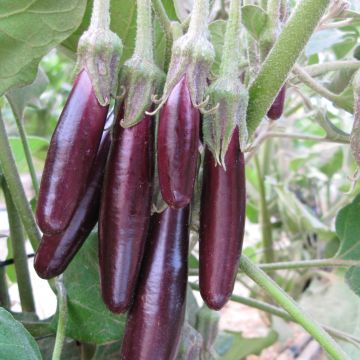

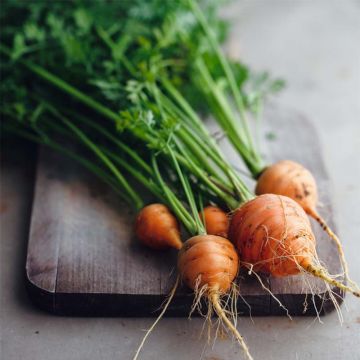
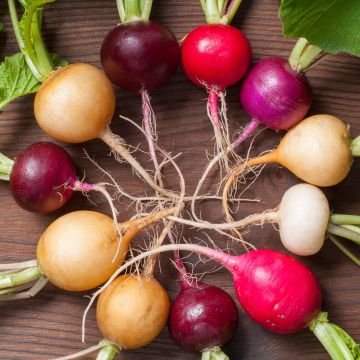
Comments